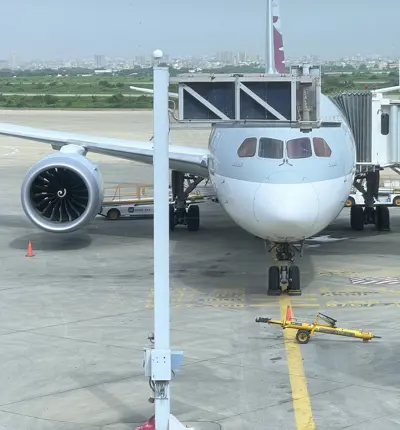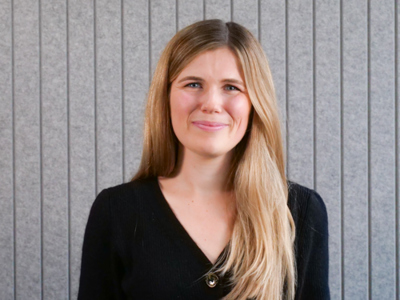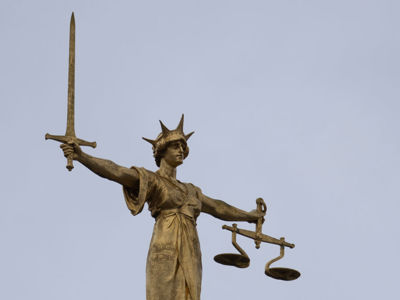
In-flight sex assault victim challenges gap in law denying her criminal injuries compensation
A woman who was victim of a serious sexual assault on a flight to London is challenging government rules that disqualify her from compensation for the criminal injury she suffered from an attacker who was later jailed for six and a half years.
Posted on 19 August 2025
She says there is an unlawful disconnect between the criminal law that brought her attacker to justice, and the compensation scheme for victims who have to live with the consequences of such horrific crimes.
Since 1996, when a gap in the law was closed, attacks and sexual assaults (along with other crimes) that occur on-board UK-bound foreign aircraft have been able to be prosecuted in UK criminal courts.
However, that same gap still exists in the Criminal Injuries Compensation Scheme (CIC Scheme) so victims of such crimes on-board foreign flights headed to the UK are not entitled to compensation.
Now the woman who suffered a serious sexual assault on-board a Doha to Gatwick flight in September 2024 is preparing to challenge Justice Secretary Shabana Mahmood in the courts over the difference.
The woman, who as a victim of a sex crime is entitled to anonymity, and we have referred to here as Kelly, was asleep on a Qatar Airways flight in September 2024 when Momade Jussab attacked her.
He was arrested at Gatwick Airport and in May 2025 was convicted of offences of sexual assault and sexual assault by penetration. He was sentenced to 78 months in prison, with a ruling that he must serve two-thirds of his term, and has been placed on the Sex Offenders’ Register indefinitely.
In a victim impact statement, Kelly said; "It has felt so hard and so traumatising to think that anyone would ever want me to do that to me…the shock and disbelief at what I have experienced will never go away and I will never understand how or why anyone would do that to a person."
The experience has had an ongoing severe impact on Kelly’s mental health.
She applied to the Criminal Injuries Compensation Authority (CICA) for an award under the CIC Scheme but was refused. Kelly asked for the decision to be reviewed, but in May 2025 the refusal was upheld.
A letter from CICA explained that the due to the location of the crime suffered by Kelly the offence did not fall into the ‘relevant place’ as defined by the CIC Scheme.
An aircraft is only considered a ‘relevant place’ if it is a British-controlled aircraft within the meaning of section 92 of the Civil Aviation Act 1982. As the attack on Kelly happened on a Qatari controlled aircraft, CA was ineligible for compensation.
Kelly turned to human rights lawyers at law firm Leigh Day, who have written urgently to the Justice Secretary with a letter that signals the start of the judicial review process.
Solicitor Claire Powell points out that section 92 of the Civil Aviation Act 1982 was amended in 1996 with the Civil Aviation Amendment Act (CAA Act) expressly to extend the application of UK criminal law to foreign aircraft in certain circumstances.
Subsection 1(a) of section 92 says that acts are caught by UK criminal law if they occur on a foreign controlled aircraft whose next and final destination is the UK, and the act would be an offence in the country where the aircraft is domiciled.
It was this change which meant Momade Jussab could be arrested and charged when the Qatari flight landed at Gatwick.
But the section 1 (a) change appears not to have been reflected in the CIC Scheme, which makes no reference to the 1996 amendment.
The letter argues:
“The disconnect between the statutory jurisdiction of the criminal law under the CAA Act and the CIC Scheme’s definition of ‘relevant place’ results in situations like our client’s, where the State acknowledges the offence lies under its jurisdiction for the purpose of prosecution, but denies victims access to compensation.
“The CIC Scheme treats victims of violent crime differently based solely on the technicality of an aircraft’s registration. Under the current scheme, a victim of a violent sexual assault on a British-registered aircraft is eligible for compensation, while a victim of the same violent assault on foreign registered aircraft – on a UK bound flight, where the perpetrator is prosecuted under UK law – is excluded.”
The letter asks the Justice Secretary to put an amendment to the scheme before Parliament to close the current gap in the law.
Kelly said:
“I do not understand why I, and other victims like me, have been excluded from the CIC Scheme. I was attacked on a flight en-route to the UK, I am a UK citizen, and this crime was investigated and prosecuted by British authorities. I should be entitled to compensation and being excluded from the Scheme is unfair and illogical. I am still suffering with the effects of the attack and want to move forward with my life. I ask the Justice Secretary to close this gap as soon as possible to allow me and other victims like me, access to compensation and closure to the crimes we have suffered.
Leigh Day solicitor Claire Powell said:
“This is very simple. The 1996 update to the Civil Aviation Act means that criminal acts committed on board foreign flights bound for the UK can be prosecuted in the UK criminal courts.
“Our client suffered an horrific sexual attack on a UK-bound flight. She was refused compensation under the Criminal Injuries Compensation scheme simply because it was a foreign flight and the rules have not been amended in line with the updates to the Civil Aviation Act.
“We are surprised that it is almost 30 years since the law was changed so that criminal offences committed on UK-bound flights can be prosecuted in the UK courts, yet still the rules governing eligibility for criminal injuries compensation have not been updated. It is a gap that needs closing urgently and we trust the Justice Secretary will agree, particularly in light of this government’s commitment to addressing violence against women and girls”
Claire is part of the team working on the case at Leigh Day alongside Tessa Gregory and Shania Foon. Leigh Day has instructed Jess Jones at Matrix Chambers as Counsel in the case.
Related Content

Claire Powell
Claire is an associate solicitor working across the International and Human Rights departments.



